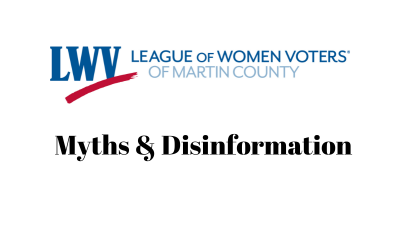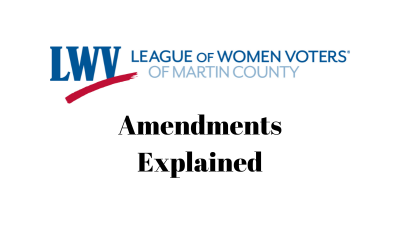Blog

The November 21 Rivers Coalition meeting focused on Major Cory Bell from the Army Corps of Engineers sharing the reasoning behind their decision to start releasing water from Lake Okeechobee into the St. Lucie Estuary on December 7 in a “Lake Recovery Operation”. Why now? Four years of above-normal lake levels have destroyed almost 90% of the lake’s submerged aquatic vegetation – the grass that’s needed for the little critters at the bottom of the food chain to grow and for bass to spawn. During that time, the lake’s turgidity has degraded so much that sunlight, essential to plant growth, can only penetrate three feet of lake water compared to the six feet that was previously the case. The Lake Recovery Operation’s plan is to lower the current lake level (16.03 feet; a foot above the late-November optimal management level) to 12 feet or less for a 90-day period. They want to reach that 12-foot level on May 1, to allow the decimated submerged aquatic vegetation beds to recover during the summer. It sounds like a wonderful idea. Alas, there’s a cost – a big one, to us. The Lake Recovery Operation would send a whole lot of fresh water down to the St. Lucie Estuary. As the Florida Oceanographic Society noted in a letter to the Corps, “Over the past two months, the St. Lucie Estuary has been subjected to prolonged freshwater conditions as a result of sustained stormwater runoff. This influx of fresh water has devastated essential marine ecosystems, including the widespread loss of oysters and seagrass beds, already suffering from the effects from recent rainfall runoff.” They added: “Any further freshwater introduction from USACE operations could hinder or even halt the potential for recovery of the estuary.” Simply put: What’s good for the lake is bad for the estuary. You will probably not be surprised that Rivers Coalition members were not at all happy with the Lake Recovery Operation. The FOS and Friends of the Everglades have both written the Corps urging them to reconsider the timing and scope of their Lake Recovery Operations. If you’d like to join them, you can send an email to cory.j.bell@usace.army.mil . Meanwhile, a frustrated Jacqui Thurlow-Lippisch observed that the Treasure Coast’s position on the South Florida Water Management District’s Board has remained unfilled ever since the Florida Senate refused to consider her reappointment two years ago. She urged us to try to get the Governor to appoint somebody – anybody – to advocate for the Treasure Coast on the so-important-to-us SFWMD board. So if you happen to bump into the Governor…

October 29, 2024 Rumors Report: 2024 General Election Overview The Algorithmic Transparency Institute, a project of the National Conference on Citizenship, is partnering with the League of Women Voters during the 2024 U.S. general election to inform LWV and State Leagues about narratives circulating online related to elections, democracy, and voting. This report summarizes key narratives based on internal monitoring by ATI and tips submitted by our volunteer network. We also outline data deficits related to each narrative. A data deficit indicates an open question or lack of good information on a topic. Data deficits represent critical opportunities where advocates can insert good information to help combat the misleading narrative. Covering Rumors Responsibly The following narratives may describe rumors, mis-/disinformation, conspiracy theories, and hateful content. Please be mindful of and responsible with how you communicate about these topics. Rather than restating or re-sharing rumors, instead share positive information that inoculates voters against rumors and other false/misleading information. Summary of Narratives ● National Narratives: ○ False Claim: Video shows Trump ballots being destroyed ○ Misleading Claim: Ballot drop box fires are proof that political groups will enact violence on Election Day ○ Misleading Claim: Voting machines are “switching” votes in several states ● State Narratives: ○ Misleading Claims: Fraudulent voter registrations uncovered in Pennsylvania indicate widespread problems ○ Misleading Claim: Bucks County, Pennsylvania election officials are improperly turning away voters ○ Misleading Claim: Re-printed ballots in Virginia Beach, Virginia could lead to double voting, election fraud ○ False Claims: Georgia elections are susceptible to fraud because Georgia Election Board rules were blocked Narratives False Claim: Video shows Trump ballots being destroyed A story about a hoax video, supposedly showing an election worker discarding ballots, has made national news. In the video, an election worker in Bucks County, Pennsylvania opens mail-in ballots. When he opens a ballot for Trump, he tears it into pieces. Upon opening a ballot for Harris, he places it back in the envelope. Officials in Bucks County say the video is a hoax – and not a particularly good one. The ballot envelopes in the video are made of glossy paper with a blue accent. Real Bucks County ballot envelopes are matte with a green accent, as seen in this video about mail-in voting from the official county YouTube page. Investigations by federal officials revealed the video was created and disseminated by Russian intelligence. In a joint statement, the Office of the Director of National Intelligence, the FBI, and the Cybersecurity and Infrastructure Security Agency said, "This Russian activity is part of Moscow's broader effort to raise unfounded questions about the integrity of the U.S. election and stoke divisions among Americans.” Data Deficits ● Voters may lack information about what Bucks County ballots and ballot envelopes look like ● Voters may lack information about foreign interference campaigns spreading ahead of Election Day Where can we point people for good info? ● Russia is behind fake video of ballots being destroyed, U.S. officials say, from NPR ● Life of a Ballot, from BucksCoGovt YouTube ● Press Release: Joint ODNI, FBI, and CISA Statement, from The Cybersecurity and Infrastructure Agency Misleading Claim: Ballot drop box fires are proof that political groups will enact violence on Election Day Fires were reported at ballot drop boxes in Portland, Oregon and Vancouver, Washington on Monday. In Washington, “hundreds” of ballots were destroyed. In Oregon, only three ballots were affected. Earlier this month, on October 8, another device was found in an empty ballot drop box in Washington state. The incidents are still under investigation, and it’s important to remember that facts can change quickly in breaking news situations. This narrative is up-to-date as of 12:00 PM ET, October 30. At this time, authorities believe the incidents are connected, targeted, and intentional. Investigators are searching for a car spotted at both scenes and similar devices were used to start the fires. Posts have claimed that this is evidence that political or activist groups are planning other violent acts. Posts have also claimed that particular people or groups have been accused. Though investigators believe the attacks were intentional, there are no suspects at this time. The New York Times reported that incendiary devices were marked with the words, “Free Gaza,” and that investigators are “trying to determine if the perpetrator was actually a pro-Palestinian activist or someone…sow[ing] discord.” In Washington, voters who dropped their ballots in the affected drop box between Saturday and Monday are encouraged to contact their local elections office. In response, election officials will be emptying drop boxes more frequently, and in the evenings, to reduce the number of ballots sitting in boxes overnight. Drop boxes will also receive “24-hour enhanced security.” In Oregon, only three ballots were burned. Luckily, none were heavily damaged and the three voters – who can be identified via a unique ID on their ballot envelope – have been contacted by election officials. Officials in both states want to reassure voters that even if their ballot was affected, they will have their votes counted. Ballot drop box fires are rare, but have happened before. In 2020 two drop box fires were reported: one in Massachusetts and one in Los Angeles County. While these fires are an alarming threat to democracy and the functioning of elections, it’s important to emphasize that voting is safe and election officials are working hard to ensure that every ballot is counted accurately. Be cautious of rumors that assign blame or make unfounded claims about motive while investigations are ongoing. Data Deficits: ● Voters may lack information about motive, suspect(s) in attacks Where can we point people for good info? ● Ballot drop box fires under investigation in Oregon, Washington after hundreds of ballots destroyed, from CNN ● WA, OR ballot box fires: Here’s what we know, from The Seattle Times ● Devices With ‘Free Gaza’ Messages Found at Ballot Box Fires, from The New York Times Misleading Claims: Voting machines are “switching” votes in several states Rumors about voting machine errors continue to spread in states across the country. In many of these instances, voters reported their votes being “switched” to candidates they did not choose. In one such example, election officials in Shelby County, Tennessee held a press conference to head off rumors about a problem that affected three voters (out of 18,000 who successfully cast their ballots). Officials explained that the problem, saying “‘it’s all about the placement of the finger when it taps the screen.’” The affected voters had tapped the touchscreen too close to the edge of their selection, triggering a different candidate selection. Similar rumors have spread in Georgia, Texas, Maryland, Florida, and South Carolina. Election officials say it is important for voters to make their selections carefully and to review their ballot before submitting it. Data Deficits: ● Voters may lack information about how to properly use a touchscreen voting machine Where can we point people for good information? ● Election Commission official clears the air on voting irregularity claims, from FOX13 News ● 'Blown out of proportion': Georgia county clears air on voting machine fraud claim, from ABC4 News ● Georgia tests its touchscreens and scanners to make sure they will work on Election Day, from The Atlanta Journal Constitution Misleading Claims: Fraudulent voter registrations uncovered in Pennsylvania indicate widespread problems Election officials in Lancaster County, Pennsylvania have uncovered at least 2,500 voter registration applications that appear to be fraudulent. Officials discovered the applications in the course of their standard review process. Officials say the suspicious applications included signatures that did not match the voters’ on-file signatures, obviously incorrect personal information, and many applications written in the same handwriting, appearing to have been written by the same person. District Attorney Heather Adams said the applications were submitted by paid canvassers, who are employed to register voters. Detectives are investigating who directed the paid canvassers and if other counties were impacted. This is not evidence of widespread voter fraud at this time, nor evidence of a particular group/person directing the canvassers. Election officials in Lancaster County say the system is working as intended to protect against fraud. Rumors have targeted both left- and right-leaning groups, though officials have not yet released information about who may be responsible. Data Deficits: ● Voters may lack information about how voter registration applications are verified Where can we point people for good information? ● Pennsylvania officials investigating fraudulent voter registration applications in Lancaster County, from NBC News ● Donald Trump makes false claims about ballots in Lancaster County in Truth Social post, from The Philadelphia Enquirer ● Trump stokes voter fraud fears in Pennsylvania as counties investigate and state urges patience, from CNN Misleading Claim: Bucks County, Pennsylvania election officials are improperly turning away voters Stories have spread about long lines as Pennsylvania voters cast ballots ahead of Election Day, leading to rumors suggesting that election officials are stopping people from voting. Though Pennsylvania does not offer traditional early voting, it extends – as a courtesy – “on-demand in-person mail-in ballots.” Using this service, a voter can visit an election office/satellite election office and request a mail-in ballot. The official will immediately check the voter’s registration status and print off a ballot if the voter is eligible. The voter can fill out the ballot on-site and return it right then. This differs from the typical mail-in voting process, through which voters need to request a ballot, wait for it to be mailed to them, and then return it. Early in-person on-demand voting is a limited service that election offices offer as they are able. Voters may be turned away if lines become too long and election officials are at capacity. Voters who did not understand the limited availability of early on-demand mail-in voting believed they were improperly turned away by election officials, and many reached out to various authorities to try to remedy the situation. Some claimed that officials were turning away voters from a particular party; however, there was no way for officials to know voters’ party registration. Bucks County clarified: “Due to high demand, wait times for in-person mail-in ballots may be longer than expected. To ensure all applications are processed by the end of the day, the office may need to stop accepting new applicants before the posted closing time. We appreciate your patience and understanding.” Data Deficits: ● Voters may lack information about Pennsylvania’s on-demand in-person mail ballot system and how it differs from traditional in-person voting Where can we point people for good information? ● Confusion over mail ballots at Bucks County election office leads to long lines, frustrated voters, from The Pennsylvania Capital-Star ● On-Demand Mail Ballot Voting, from The Commonwealth of Pennsylvania ● Trump campaign to sue Bucks County after voters have issues with mail ballot voting on demand, from CBS News Misleading Claim: Re-printed ballots in Virginia Beach, Virginia could lead to double voting, election fraud Approximately 7,400 residents in Virginia Beach, Virginia received corrected mail-in ballots after candidate names in three races were printed in the wrong order. Candidates are to be listed in the order they filed their candidacy. Corrected ballots were sent out and affected voters were directed to shred their incorrect ballots. One resident expressed concern about election fraud, saying that the old ballots could be used to double vote. However, local officials confirmed that mail-in ballots are scanned as they are received, which would identify any voter who submitted multiple ballots. Data deficits concerning election administration processes – and how officials handle problems like mis-printed ballots – can become easy targets for rumors. Data Deficits: ● Voters may lack information about administrative processes for fixing ballot errors, like misprints ● Voters may lack information about how mail-in ballots are tracked and identified Where can we point people for good information? ● Virginia Beach spent thousands of dollars on mail-in ballot reprint, from The Virginian-Pilot False Claims: Georgia elections are susceptible to fraud because Georgia Election Board rules were blocked The Georgia State Supreme Court recently said controversial rules passed by the Georgia Election Board cannot go into effect before the November 5 election. Though the Court did not rule on the legality of the rules, they said the changes could not go into effect while there are legal challenges against them. Practically speaking, this means the rules will not come into play in the 2024 general election. The Georgia Election Board, which is composed of five members, passed a slate of rule changes informed by false claims about election integrity. Changes included requiring the hand-counting of the total number of ballots cast in each county and allowing election officials to decline to certify election outcomes if they believe fraud occurred. Three of the five board members have promoted false claims about election integrity and won the praise of Donald Trump for their work. Data Deficits: ● Voters may lack information about the Georgia Election Board’s rulemaking controversies Where can we point people for good information? ● Georgia Supreme Court maintains block on controversial election rules from Trump allies, from CNN ● Georgia election official Janelle King on the effort to change the state's election rules, from WBUR ● Explore the court cases that could impact the results of the 2024 election in Georgia, from The Savannah Morning News

The October 24 Rivers Coalition meeting featured a presentation by Merritt Matheson on the “Martin County Forever Conservation Initiative”. This is the half-cent sales tax increase referendum on the ballot to raise money to acquire and preserve environmentally-important land. Merritt, a former mayor of Stuart, co-chairs the two-year effort. A) It is a referendum. This means future County Commissions can’t change it. The only way it can be changed is via another referendum. B) Acquisitions are specifically limited to four areas: 1) Blue Water (small parcels of land adjacent to water bodies), 2) The Indian River Lagoon Watershed (mainly land in the area of the St. Lucie Canal), 3) Loxa-Lucie (the headwaters of the Loxahatchee and St. Lucie Rivers) and 4) Pal-Mar. C) Proceeds can also be used to buy conservation easements permanently limiting land uses to protect its conservation value. Importantly, all easements will be in perpetuity and irrevocable. The half-cent sales tax is expected to generate $18 million/year during its ten-year lifespan. This means $140 million in bonds could be issued immediately upon voter approval and land acquisitions could begin early next year. Significantly, acquisitions of this nature are typically made using matching funds, so Martin County’s $140 million would end up being leveraged to several times that. The acquisition process, though, must be initiated by a local government, which makes the Martin County sales-tax referendum the keystone of the process. The Martin County Forever team is well aware that the last such initiative in 2006 led to some serious problems. Per the referendum, proceeds from that half-cent sales tax were to be split 50/50 between purchasing conservation lands and creating improved parks. The sales pitch, though, emphasized “purchasing conservation lands”, and the “creating improved parks” part, although hiding in plain sight, was glossed over. The result: Sailfish Splash. Matheson emphasized that the Martin County Forever team has included some very strong safeguards in the initiative to avoid any possible future hanky-panky with the proceeds from this initiative. The proceeds can be used to buy land -- and nothing else. More information is available on Martin County Forever’s website: https://www.martincountyforever.com/ The Martin County League has not taken a position on this referendum but is a member of the Rivers Coalition, which supports it. Meanwhile, some friends at Sandhill Cove recently took a tour of U. S. Sugar’s operations. U. S. Sugar made a really slick presentation which insists they are doing nothing whatsoever to harm anything or anybody. I asked Mark Perry what the biggest thing was that they left out. “Overdraining”; they’re discharging water into canals which drain into water treatment areas, which keeps water from Lake Okeechobee from flowing south. There are others; suffice it to say that a sugar-sponsored tour (which I thought was fascinating when I took it) is a commercial, not a documentary. -- Walter Deemer, Martin County League of Women Voters

Ballot Language : Proposing the repeal of the provision in the State Constitution which requires public financing for campaigns of candidates for elective statewide office who agree to campaign spending limits. Synopsis : Presently, there is a right to public financing under Section 7 of Article VI of the Florida Constitution, which requires that the state provide a public campaign financing program for candidates for statewide office (Governor and Cabinet). If proposed Amendment 6 passes, it would repeal the right to public financing for candidates running for state-wide offices. Implementing legislation would also come into effect to repeal the Florida Election Campaign Financing Act. Florida enacted a public campaign financing law in 1986 and in 1998 Floridians added it to the state constitution with 64% of the vote. The constitution currently requires that candidates for governor, attorney general, chief financial officer, and commissioner of agriculture are able to access public campaign financing if they agree to spending limits. Presently, Florida law (106.31 F.S.), provides for public financing for campaigns and the stated “purpose of public campaign financing is to make candidates more responsive to the voters of the State of Florida and as insulated as possible from special interest groups.” This statute would be repealed if this amendment passes. More specifically, under the current public campaign financing program, candidates can access matching funds for contributions made by individual Florida residents who are contributing $250 or less. To qualify for these matching funds, a candidate must: ● not be running unopposed ● agree to limit their total spending to $2.00 for each registered Florida voter (for gubernatorial candidates) or $1.00 for each registered Florida voter (for cabinet candidates) ● raise $150,000 (for gubernatorial candidates) or $100,000 (for cabinet candidates) ● limit loans or contributions from the candidate’s personal funds to $25,000 and limit contributions from political parties to $250,000 ● report campaign financing data to the division of elections and submit to a post-election financial audit. In 2022, the spending limit for gubernatorial candidates receiving public campaign financing was $30.29 million ($2.00 per registered voter) and the limit for cabinet candidates was $15.14 million ($1.00 per registered voter). This amendment would remove these spending limits. Actual spending in 2022 for public campaign financing was $13 million, roughly equivalent to 0.01% of the state’s $109.9 billion 2022-2023 budget. This amendment was referred to the ballot by the 2024 Florida Legislature (Senate: 85 Yes to 15 No; House: 82 Yes to 29 No). In 2010, the Legislature referred this same amendment to the ballot and it received 52.49% of the vote, falling short of the 60% required for passage. Opponents of this amendment, including Common Cause and the League of Women Voters of Florida, state that the matching fund program gives small-dollar donors a greater voice and encourages candidates to seek support from broad groups of voters. Further, if the program is repealed, wealthy donors and special interest groups would no longer be limited in the amounts they can contribute to these candidates. In addition, public financing enables candidates who are not wealthy or who have more limited access to financing to be able to run for office, leading to a more diverse pool of candidates. Supporters of this amendment, including the majority of the Florida Legislature, state that this financing, which comes from Florida’s general fund, could be used for other programs such as education, health care or housing. A Yes Vote Would ...: Repeal Section 7, Article VI from the Florida Constitution (passed in 1998) and repeal the Florida Election Campaign Financing Act, ending Florida’s public campaign financing program and spending limits for publicly-funded candidates for Governor, Attorney General, Chief Financial Officer, and Commissioner of Agriculture. A No Vote Would. ..: Leave the current public campaign financing program, including spending limits for publicly-funded candidates, in place.

The Martin County Board of County Commissioners will take a break from approving Comprehensive Plan amendments at Tuesday’s meeting and will continue what appears to be a permanent “break” from discussing affordable housing despite promises from staff and commissioners to solve the problem of high rent and home prices for low- and moderate-income residents. Among the 13 items buried on the Consent Agenda, which will be approved by a single vote at the beginning of the meeting without public explanation or discussion, are CNST-8 to approve a revised Local Housing Assistance Plan for the Fiscal Years 2023-2026 and CNST-9 to approve an incentive strategies report for the State Housing Initiative Partnership (SHIP). A public hearing will be held on Agenda Item PH-1 to approve the SHIP annual report for Fiscal Year 2021/2022. The report reflects that the County spent only $83,500.00 to provide purchase assistance for just one home and $22,908.00 to provide rental assistance for just 15 renters between October 1, 2021 and September 30, 2022. Most of the $646,437.85 in SHIP funds spent during that period was for repairs, renovations, and utility assistance for 20 homeowners. The County’s primary affordable housing program provided assistance to only 36 residents during 2021/2022. It’s not surprising that neither staff nor the commission wish to engage in public discussion of affordable housing program plans and strategies for upcoming fiscal years. Three zoning change applications will be approved in items on the public portion of the Agenda: – Item PHQJ-1 is a request to change zoning on a 3.8-acre parcel east of SE Federal Highway and south of SE Salerno Road from B-1 Business District to GC General Commercial for KSA Equities Holdings, Inc.; – Item PHQJ-2 will change zoning on a 9-acre parcel for the All Saints Cemetery in Jensen Beach from A-2 Agricultural District to PS-2 Public Service District; and – Item PHQJ-3 will change zoning on a 10.97-acre parcel on SE Salerno Road and SE Ault Avenue from A-1A Agricultural District to RE-2A Rural Estate District for the Grace Place, Inc. NOTE: The lame duck commission, which includes retiring Commissioner Harold Jenkins and Commissioner Doug Smith, who was defeated in his re-election bid by voters demanding a change, is scheduled to vote on all of the proposed Evaluation and Appraisal Report amendments to the Comprehensive Plan at the October 22 meeting. Staff and the County’s paid consultant, the Treasure Coast Regional Planning Council, have proposed amendments to every chapter of the Comp Plan, making changes which are unnecessary, ill-advised, and entirely outside the EAR process, which requires periodic updates of local plans to comply with newly enacted state laws. Other amendments which expand and increase development in rural areas were rushed through by sitting Commissioners at the last meeting and have already been transmitted to the state for review. These amendments – and the EAR amendments – will return to the Commission for final adoption after two newly elected commissioners are seated next month. In other items on Tuesday’s short agenda: – Commissioners will approve the Clerk’s warrant reflecting expenditures of $18,166,203.43 in tax dollars between September 9 and September 22, 2024, without disclosing the payees or the purpose of the payments (Consent Agenda Item CNST-2); – Also on the Consent Agenda, Commissioners will approve a $529,700.00 contract to One Call Florida, Inc., for construction of a 727-square foot building including a laundry facility, restrooms, office, utility room, and storage room for the Manatee Pocket Mooring Field upland facility (Agenda Item CNST-1); and – An amendment to extend the lease with Daher Aerospace, Inc., for premises at the Martin County Airport which expires on October 31, 2024, will be approved in Agenda Item DEPT-4. The meeting begins at 9:00 a.m. Tuesday in Commission Chambers at the Martin County Administration Center. Attend in person, watch on MCTV or livestream the meeting from the County website at http://martin.granicus.com/ViewPublisher.php?view_id=24 . Agenda items may be viewed and downloaded at https://martin.legistar.com/DepartmentDetail.aspx?ID=35023&GUID=98D7CC54-EF7D-4C4C-8084-1AF34C623D6E E-mail commissioners about matters that interest you at sheard@martin.fl.us , eciampi@martin.fl.us , dsmith@martin.fl.us , hjenkins@martin.fl.us , shetherington@martin.fl.us with copies to the County Administrator and County Attorney at ddonalds@martin.fl.us and swoods@martin.fl.us .

The September 26 Rivers Coalition meeting featured a presentation by Col. Brandon Bowman, the new Commander of the Army Corps of Engineers Jacksonville District, of updates on the Corps’ projects. A representative from the South Florida Water Management District was also scheduled to give updates on their projects but was trying to deal with Hurricane Helene and unable to join us, and Col. Bowman had to leave early for the same reason. The updates were thus somewhat incomplete. Col. Bowman reported that, after a seemingly-endless process, the new Lake Okeechobee Systems Operating Manual which replaced the 2008 version is now in effect. It will prevent discharges from the lake 95% of the time, give the Corps much more flexibility in managing the lake, and involves local stakeholders in the decision-making process. These are real positives for the St. Lucie Estuary. Meanwhile, the C-44 Reservoir and Stormwater Treatment Area northeast of Indiantown is now in the testing phase. It was designed to treat runoff (rainwater) before it gets into the St. Lucie Canal, and is already reducing phosphorous content by 80%. During the testing process, the C-44 water level is being held at 10 feet, but will go up 15 feet when the process is completed in 2026. The C-44 is thus an important step forward to make Estuary water healthier. The Corps’ other big project impacting us is the huge A-2 Stormwater Treatment Area south of the lake. When it’s done, the Corps will be able to send a lot more water south; enough to lower the lake level by half a foot, in fact. Alas, these things take a long, long time to build; the A-2 won’t be fully operational for another 6-8 years. Col. Bowman stressed, however, that only water from the lake will flow through the A-2 project; it is not a place for Big Sugar to dump their runoff. John Maehle, from Martin County, reported that they have planted 13 acres of seagrass so far this year. He also proudly announced the county has met 100% of their regulatory benchmarks, adding that “we always try to exceed them, not just meet them”. Finally, a sour note: Mark Perry reported that conditions in the Estuary were “very bad” due to all the rain runoff of late which have lowered salinity levels significantly. Given all the rain Hurricane Helene dumped on the West Coast, Georgia and North Carolina, though, “very bad” is a whole lot better than what those folks have to deal with. -- Walter Deemer, Martin County League of Women Voters


